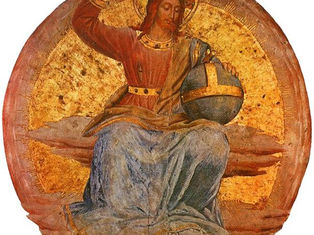top of page
Articles


Copyright Law between Art and the Internet: In Conversation with Professor Andreas Rahmatian
Professor Andreas Rahmatian is Professor of Commercial Law at the University of Glasgow School of Law. Originally from Vienna, he obtained his first degree in law and a PhD in Private Law from the University of Vienna, and completed another degree in musicology and history there. He holds an LLM from the University of London. He worked as an associate attorney-at-law in Vienna and qualified as a solicitor with a City firm in London before he became a full-time academic. He ha

Thomas Hood
22 min read


Augustine on Canonical Penance: An Ethic of Criminal Sentencing
Introduction Canonical Penance in the early Church and the modern concept of prison, broadly construed, are both processes of...

Alexander Levy
21 min read


The Role of Architecture in International Law
Turrets and spires tower over rich façades and stained-glass windows. Ornate vases sprout up from formal Versaillais parterres made of...

Alessandro Angelico
8 min read


A Shift in Political Identity and its Impact on the Rule of Law
A recent study in the United States indicated that the rate of Americans identifying themselves using political terms has almost doubled...

Emily Nicholson, Mishcon de Reya
14 min read


Rethinking Pharaonic Government: Constitutional Lessons from Ancient Egypt
Conventional wisdom tells us that the first civilisation to be governed in a manner comparable to our own was Ancient Greece—the world’s first democracy.[1] Such discourse has contributed to popular belief that earlier civilisations, of which Egypt is probably the best-known example, might be interesting in myriad ways but surely have little to offer scholars of modern government. Egypt, according to established narrative, was an absolute monarchy, where Pharaoh did as he ple

Alexandre Loktionov
15 min read


Levelling the Playing Field: Border Carbon Adjustments and Emissions Leakage
Introduction The 2015 Paris Agreement was a pivotal moment in the struggle against climate change. While previous climate agreements...

Callum Winstock
15 min read


Splendid Isolation or Fish out of Water? Fishing, Brexit, and the Iconography of a Maritime Nation
1. The fish are alright Historically and presently, the United Kingdom has identified and presented itself as a maritime nation.[1] Fisheries, historically a significant source of employment, cultural identity, and economic output, are a vital component of the UK’s seafaring character. Amidst the decline of other British coastal industries, fishing, also in a state of ‘managed decline’,[2] is perhaps the UK’s final remaining material link to this maritime heritage. Our ar

Aadil Siddiqi and Nathan Davies
19 min read


Famous Lost Artworks
Modern commerce takes place at supersonic speed. It therefore surprises many that most of the world’s traded goods are still, at some...

Serhan Handani
8 min read


Remediation
The will to transparency, the scopic drive to see through, to scrutinise naked truth, encounters a significant impediment in the dead letters, the literae mortuae , of law. The puppet show of juridical interpretation, the marionettes that are pulled as heavy signifiers, gothic black-letter dogmas from the pickle jar of precedent, perform a spectacle that is always a trope and costume, a stage and screen away from the viewing subject. As the pop philosopher and ‘narcotheorist’

Peter Goodrich
21 min read


The Retrial of Dante: In Conversation with Count Sperello Alighieri and Antoine de Gabrielli
Count Sperello di Serego Alighieri is an astronomer descended from Dante Alighieri, author of the Divine Comedy . Antoine de Gabrielli is a prominent French businessman descended from Cante dei Gabrielli, the judge who condemned Dante to exile. Dante Alighieri lived from 1265 to 1321. During his lifetime, he was a pharmacist, a poet, and a politician. His study of medicines nourished an already scientific mind and allowed him to stock pharmacy shelves with his works. (Bo

Alexander (Sami) Kardos-Nyheim
10 min read


Art Law at Christie’s: In Conversation with Maggie Hoag
Maggie Hoag is Deputy General Counsel, Americas, at the auction house Christie’s. She studied art law at Stanford, and was involved in...

Alexander (Sami) Kardos-Nyheim
6 min read
bottom of page

